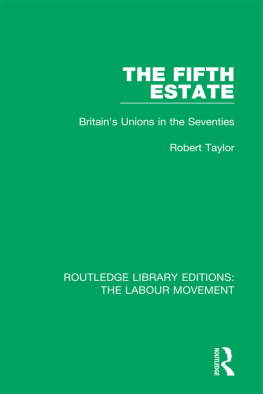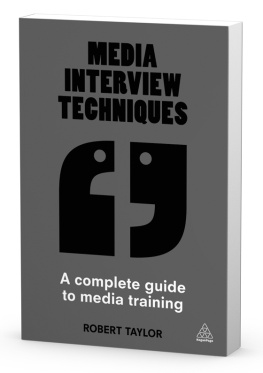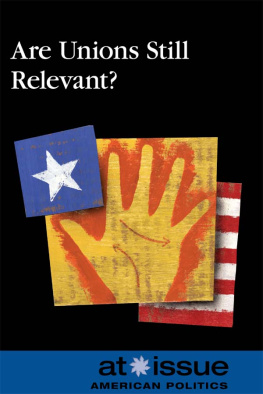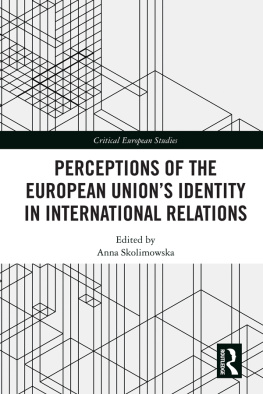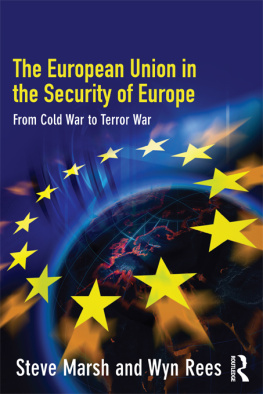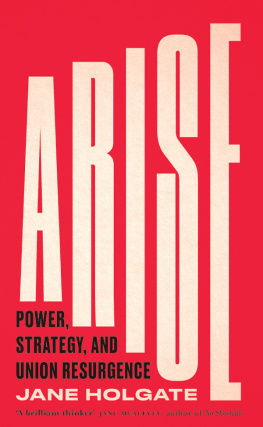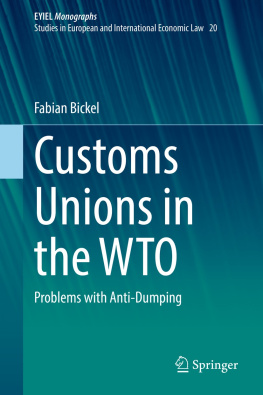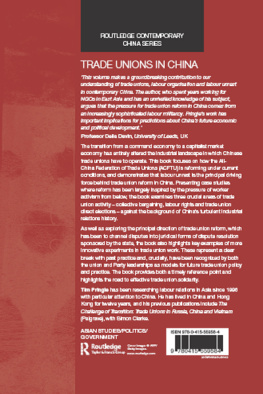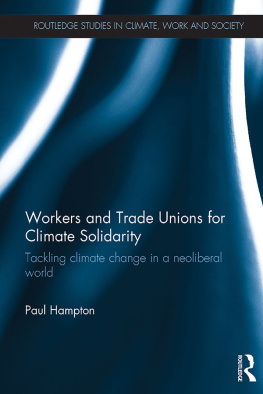ROUTLEDGE LIBRARY EDITIONS:
THE LABOUR MOVEMENT
Volume 37
THE FIFTH ESTATE
THE FIFTH ESTATE
Britains Unions in the Seventies
ROBERT TAYLOR
First published in 1978 by Routledge & Kegan Paul plc
This edition first published in 2019
by Routledge
2 Park Square, Milton Park, Abingdon, Oxon OX14 4RN
and by Routledge
711 Third Avenue, New York, NY 10017
Routledge is an imprint of the Taylor & Francis Group, an informa business
1978 Robert Taylor
All rights reserved. No part of this book may be reprinted or reproduced or utilised in any form or by any electronic, mechanical, or other means, now known or hereafter invented, including photocopying and recording, or in any information storage or retrieval system, without permission in writing from the publishers.
Trademark notice: Product or corporate names may be trademarks or registered trademarks, and are used only for identification and explanation without intent to infringe.
British Library Cataloguing in Publication Data
A catalogue record for this book is available from the British Library
ISBN: 978-1-138-32435-0 (Set)
ISBN: 978-0-429-43443-3 (Set) (ebk)
ISBN: 978-1-138-33448-9 (Volume 37) (hbk)
ISBN: 978-0-429-44527-9 (Volume 37) (ebk)
Publishers Note
The publisher has gone to great lengths to ensure the quality of this reprint but points out that some imperfections in the original copies may be apparent.
Disclaimer
The publisher has made every effort to trace copyright holders and would welcome correspondence from those they have been unable to trace.
The Fifth Estate
Britains Unions in the Seventies
Robert Taylor
Routledge & Kegan Paul
London, Henley and Boston
Contents
First published in 1978
by Routledge & Kegan Paul Ltd
39 Store Street,
London WC1E 7DD,
Broadway House,
Newtown Road,
Henley-on-Thames,
Oxon RG9 1EN and
9 Park Street,
Boston, Mass. 02108, USA
Set in 10/11 Times by
Kelly and Wright, Bradford-on-Avon, Wiltshire.
and printed in Great Britain by
Lowe & Brydone Ltd.
Robert Taylor 1978
No part of this book may be reproduced in
any form without permission from the
publisher, except for the quotation of brief
passages in criticism
British Library Cataloguing Publication Data
Taylor, Robert
The fifth estate.
1. Trade unionsGreat Britain
I. Title
331.880941 H D6664 7730402
ISBN 07100 87519
Then let us pray that come it may,
As come it will for a that,
That sense and worth, oer a the earth
May bear the free an a that
For a that an a that,
Its comin yet for a that
That man to man, the world oer
Shall brithers be for a that
Robert Burns
For the Sake of Somebody
This book was finished in the early autumn of 1977, just after the Trades Union Congress.
I am most grateful to the Observer and New Society magazine, for the opportunity they have given me to write about Britains tangled and fascinating industrial relations scene. Many of the thoughts in this book were first tested in their pages. The Political Quarterly, the New Statesman and Management Today also need to be thanked for providing me with other occasions.
Trade unionists from general secretaries to members of the rank and file gave me their invaluable help and time over the past four years to discuss their work. Without their assistance, this book would never have been possible.
Finally, my wife Ann gave me the necessary encouragement to see this book through to a conclusion.
1 October 1977
The Unions: Underdogs or Overmighty Subjects?
The unions are not the Robin Hoods they are supposed to be on every television programme. They are the robber barons of the system. (Samuel Brittan, Inflation: Causes, Consequences and Cures, Institute of Economic Affairs, 14, 1974)
British trade unionism has become a formula for national misery. (Paul Johnson, New Statesman, 16 May 1975)
The British trade unions are never short of critics. A large body of public opinion rightly or wrongly is now convinced that they wield far too much destructive power in our society and behave in an arrogant, irresponsible way. This is an unreasoning mood which has grown much stronger over the past decade.
As David Butler and Donald Stokes discovered in their 1970 nationwide surveys of political opinion:
In all our surveys a four to one majority said that when they heard of a strike their sympathies were generally against the strikes. By the end of the 1960s the number who felt unions had too much power had risen from a half to two-thirds. In 1963 53 per cent of people thought so: by 1970 66 per cent did with less than a quarter disagreeing.
Nor is it merely people not belonging to unions who hold this general view about them. Trade union members take the same attitude in large numbers. A survey carried out for The Economist in October 1975 by Market and Opinion Research International found that almost two-thirds of the 1,103 trade unionists interviewed agreed with the statement that unions have too much power in Britain today. Nearly a third of the entire sample believed that unions were the main cause of Britains economic problems. Even a supposedly militant and class-conscious group of workers like London dockers were divided in their response to the issue of general trade union power. Stephen Hill in his survey of dockers in the early 1970s found that as many as 40 per cent of those he interviewed also agreed the unions were exercising too much power in Britain.
But the evidence of polls is not conclusive. A clear ambiguity exists about the unions behind the widespread hostility. Even the majority of the MORI poll agreed that unions were essential to protect workers interests. As many as 83 per cent of Hills sample of London dockers thought the unions had as important a role to play today as at any time in the past. During both the 1972 and 1974 national coal strikes the Heath government found to its dismay that public opinion was far more sympathetic than critical of the miners action, no matter what damaging impact this was having on the nations economy. A total of 86 per cent of a National Opinion Poll in February 1974 expressed sympathy for the miners, although only two months later a mere 15 per cent of a sample for an Opinion Research Centre survey had confidence in the unions in general. Only the nationalised industries and advertising rated a lower score in popular repute.
It is indisputable that the British unions collectively and a few by themselves have the potential power to disrupt the countrys economic life through industrial action. We are very good at stopping what we do not like, but not at starting anything, admitted Len Murray, the general secretary of the Trades Union Congress, in an interview with me in September 1976. Our influence has been largely saying No up until now. In the first half of 1969 when the Labour government tried to modernise the unions through legislation, and again during the time of the Conservatives 1971 Industrial Relations Act, the trade union movement found the collective cohesion and strength of will to resist what it believed were threats to its freedom to act as it thought fit. The downfall of the Heath government in the February 1974 general election, provoked by the miners strike, appeared to confirm that no government can rule in todays Britain without the blessing of the trade unions. In the opinion of TUC general secretary Len Murray, all the major political parties have discovered the hard way in recent times that they fall into trouble when they try to govern in the teeth of union opposition.

